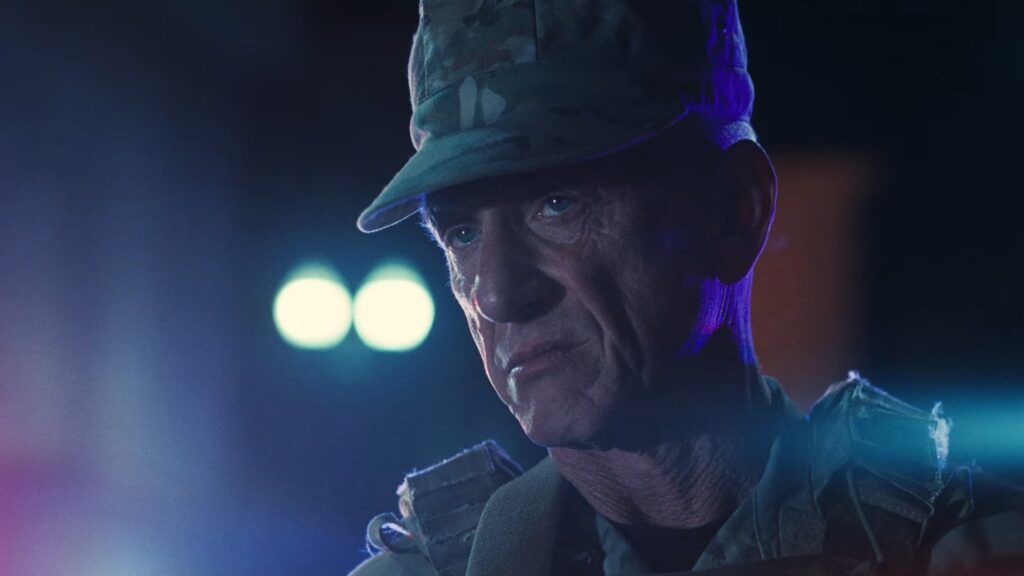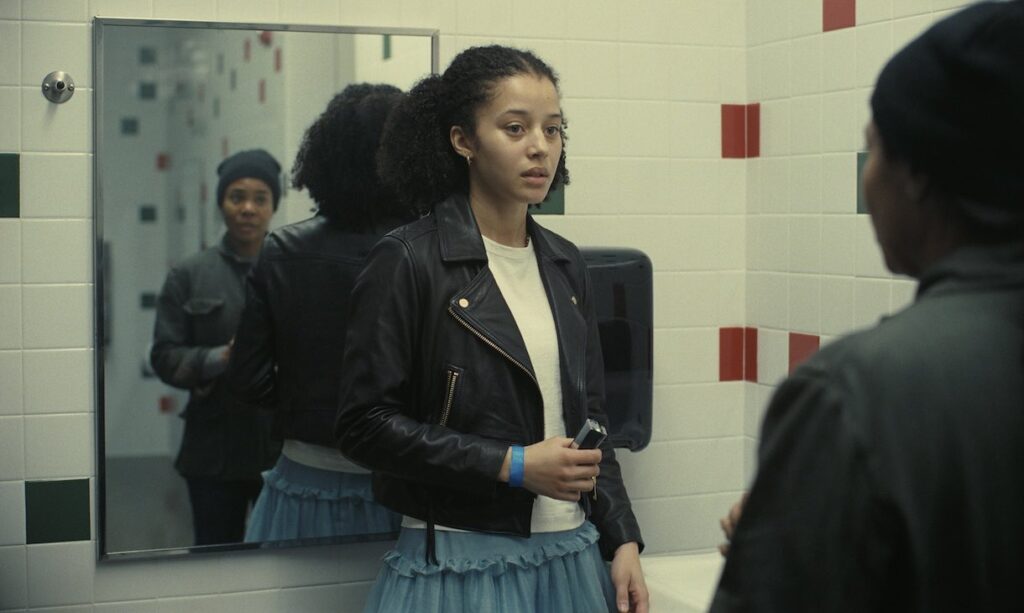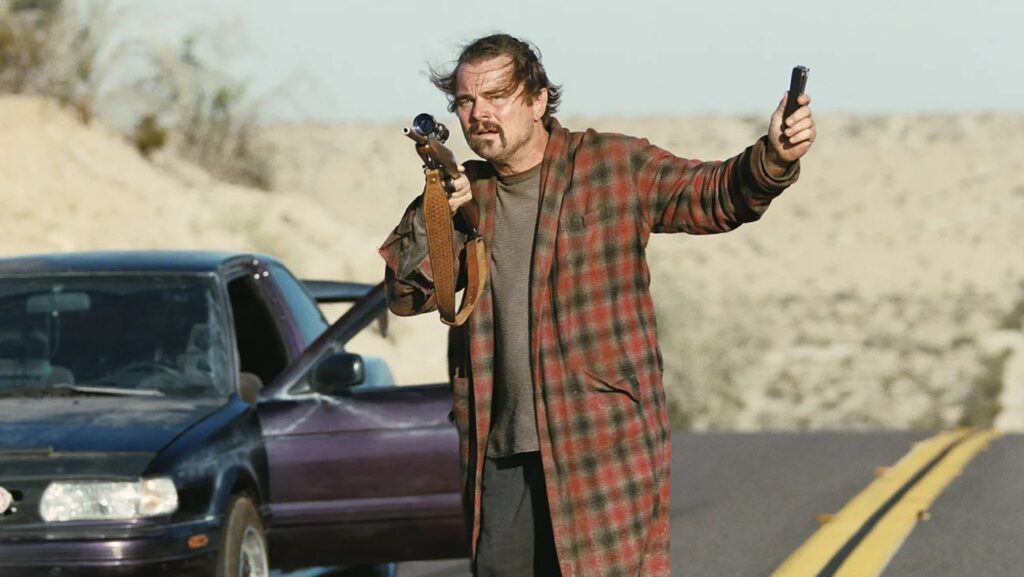The reviews are in and the critics agree: Paul Thomas Anderson’s “One Battle after Another” is an American movie about America.
“‘One Battle After Another’ might be the best movie released by a major American studio since I started working as a critic,” David Ehrlich tweeted, joining a worshipful chorus including Jake Coyle (a “madcap roller coaster ride through modern America”) and Justin Chang (“as great an American movie as I’ve seen this year”).
Inflating expectations is always perilous (don’t be too disappointed if Anderson’s creation doesn’t conquer fascism, climate change, and AI “actress” Tilly Norwood), but it’s especially off-brand for “One Battle After Another,” a film whose greatness is born of its shaggy self-awareness.
“It’s fucking World War III out there!” a skateboarder howls during a harrowing scene, despite Anderson’s fixation on a pivotal type of peacetime: when one generation confronts its limits, staking their political and personal hopes on the next.
“We failed,” Perfidia (Teyana Taylor), an activist turned informant, tells her daughter, Willa (Chase Infiniti). “Maybe you will be the one who puts the world right.” In a film set in a police state opposed by a barely competent resistance, “maybe” will have to do.
In the past decade, I doubted whether Anderson had a part to play in putting the world right—particularly after “Licorice Pizza” (2021), which smeared a romantic gloss on the creepily intense bond between 15-year-old Gary Valentine (Cooper Hoffman) and 25-year-old Alana (Alana Haim).
“You think that the world revolves around Gary Valentine and whatever stupid shit you come up with,” Alana admonished Gary. That’s about how I reacted to Anderson’s increasingly insular pursuits, from fetishizing co-dependence (“Phantom Thread”) to strangling audiences with the cinematic equivalent of a THC-scented tie-dye T-shirt (“Inherent Vice”).
Like “Inherent Vice,” “One Battle After Another” oozed from the pages of a Thomas Pynchon novel (1990’s “Vineland”). This time, however, Anderson’s storytelling is at once more sober and more vigorous, right from the bracing beginning: Perfidia liberating immigrants from a detention center ruled by Captain Steven Lockjaw (Sean Penn).

“Free borders, free bodies, free choices, and free from fucking fear!” Perfidia proclaims to Lockjaw, who is distracted (and aroused) by her gleeful command: for him to get “all the way up” (please don’t ask me to provide further details).
Emasculated and entranced, Lockjaw becomes obsessed with luring Perfidia away from the French 75, a militia of revolutionary miscreants, and her partner, the buffoonish vigilante Bob Ferguson (Leonardo DiCaprio, just handsome enough to be a Ferguson).
“I can give you the embrace of the federal government,” Lockjaw tells Perfidia. That sort of dirty talk shouldn’t work in a nation without universal healthcare, but Lockjaw succeeds in corrupting Perfidia, leaving Bob to raise Willa in an America poisoned by the captain and his white-nationalist ilk.
“It’s bedtime for democracy,” announces French 75’er Sommerville (Paul Grimstad). “Good night.” Unspoken but implicit is the question of what it will take to awaken America—and, by extension, any audience devouring Anderson’s film.
Sixteen years after Perfidia’s surrender to Lockjaw, you won’t get many answers from Bob. Sure, he rants about Benjamin Franklin being a slave owner, but it’s hollow rhetoric muted by a life now spent on the sidelines (plus a strict regimen of cannabis and alcohol).
“I don’t get mad about anything anymore,” Bob confesses. Unfortunately for him, Lockjaw, now a colonel, is madder (in both senses of the word) than ever, fearing that his past dalliances with Perfidia will doom his petition to join a white-supremacist cabal bizarrely dubbed “the Christmas Adventurers Club.”
“I am a Christmas Adventurer!” Lockjaw roars prematurely. “I have a higher calling!” It’s a calling, he decides, that demands a deathly cleanup starting with Willa, who he suspects to be his biological daughter, not Bob’s.
As Willa flees Lockjaw, “One Battle After Another” becomes one frightening and merry chase after another—with Willa’s angelic sensei, Sergio St. Carlos (Benicio del Toro), attempting to aid Bob in his shambling pursuit of his nemesis and his child.

“You know what freedom is?” Sergio asks. “No fear. Just like Tom fucking Cruise.” Too bad Bob is the anti-Cruise, as evidenced by a scene where he follows Sergio’s lithe foot soldiers across rooftops, only to tumble into an alleyway and onto the sparkly end of a policeman’s taser.
An ethereal rush of slapstick and suspense, the moment distills the combustible essence of “One Battle After Another”: Anderson’s recognition that while fascism and racism are no joke, laughter can be a lethal weapon against authoritarians and bigots.
“Why is your shirt so tight?” Willa sneers at Lockjaw, who immediately snaps, “I’m not gay, if that’s what you’re saying!” Insecurity renders Lockjaw deadly, but that doesn’t mean he’s not ludicrous (not unlike, it must be said, Penn’s cruel and stupid comments about trans women).
With an absurdly stiff spine and a waddle that makes him look like a tottering Nutcracker, Lockjaw is the film’s most vivid combatant—which makes him an ideal villain for the ascendent Willa to vanquish.
“Did you rape her? Did you love her?” Willa interrogates Lockjaw, demanding the truth about his terrorizing of Perfidia. She asks because she wants to know, but also because she knows that the question will destabilize what Lockjaw self-flatteringly refers to as “the power of my mind and body.”
The climatic test of Willa’s mettle is a chase on a California highway, which dips and bends like silk in a breeze. Each time Willa’s care zooms toward the bottom of the horizon, you fear it will never remerge; each time it surges into the sunlight, your hopes for her (and the world) are reignited.
Those hopes are countered by DiCaprio’s expert pratfalls, which intimate that “One Battle After Another” knows it belongs to Willa’s generation, not Bob’s (or, for that matter, Anderson’s). That’s why the movie ends with a song that could easily be her anthem: Tom Petty’s “American Girl,” with its ecstatic chorus of, “Oh yeah/Alright…. She was an American girl.”
“Be careful,” Bob warns Willa as she sets off for a protest in Oakland, continuing the battle on her terms. “I won’t,” she replies. Oh yeah. Alright.



